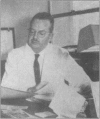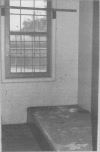Abstract
Repeatedly noncompliant tuberculosis patients (who are often homeless or substance users) are once again being forcibly detained. Health officials intend that confinement be used only when "less restrictive alternatives" have failed. Past programs of detention can inform current efforts. In 1949, Seattle's Firland Sanatorium established a locked ward. Although initially intended only for active public health threats, the ward was eventually used to maintain order among Firland's alcoholic patients. That is, the staff detained alcoholics--regardless of their infectivity or compliance with medications--for breaking sanatorium rules. In this manner, maintaining institutional order became a legitimate reason for invoking public health powers. Although new detention regulations strive to protect patients' civil liberties, attention must also be paid to the day-to-day implementation of coercive measures. When public health language is used to justify administrative or institutional requirements, disadvantaged patients may be stigmatized.
Full text
PDF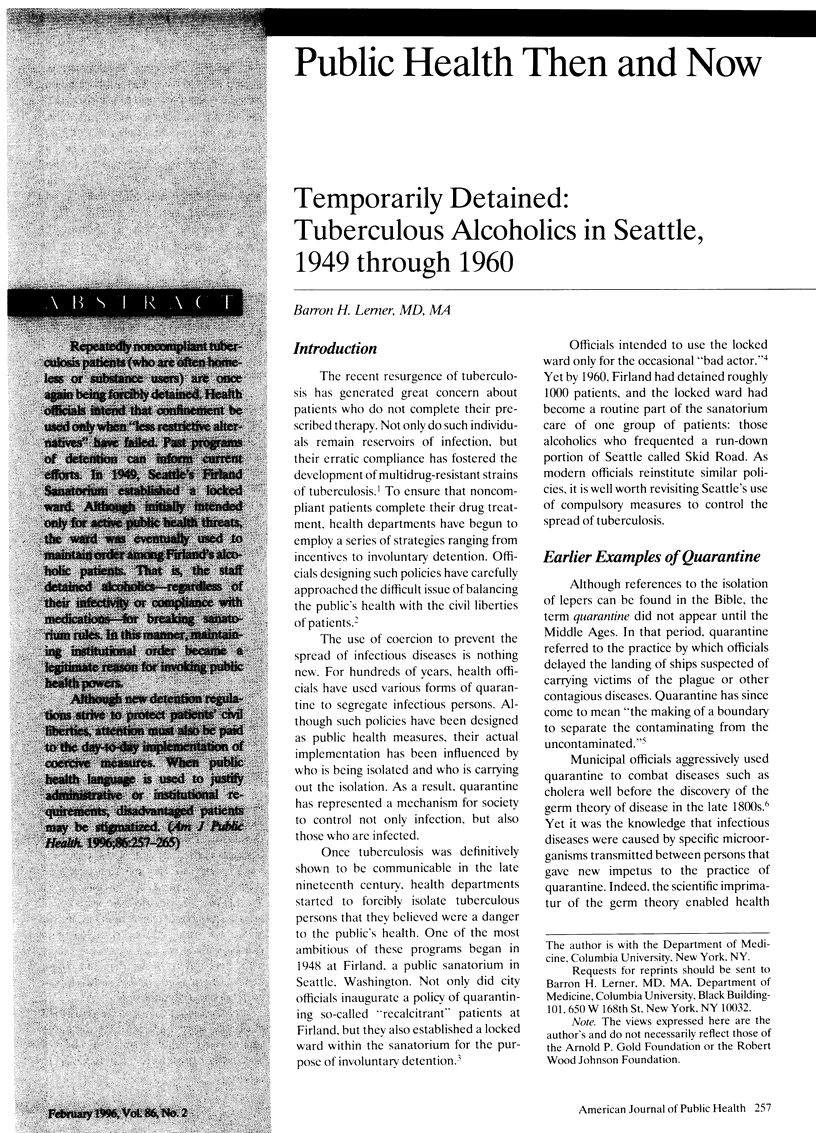
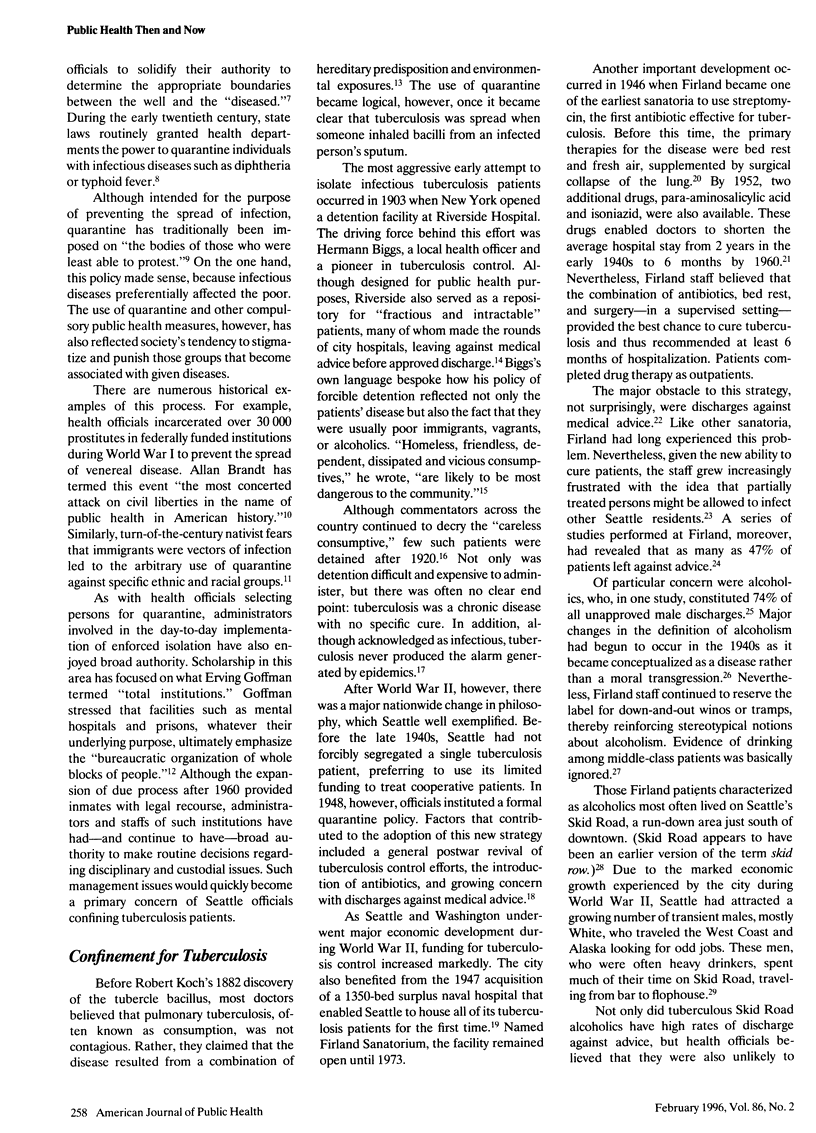
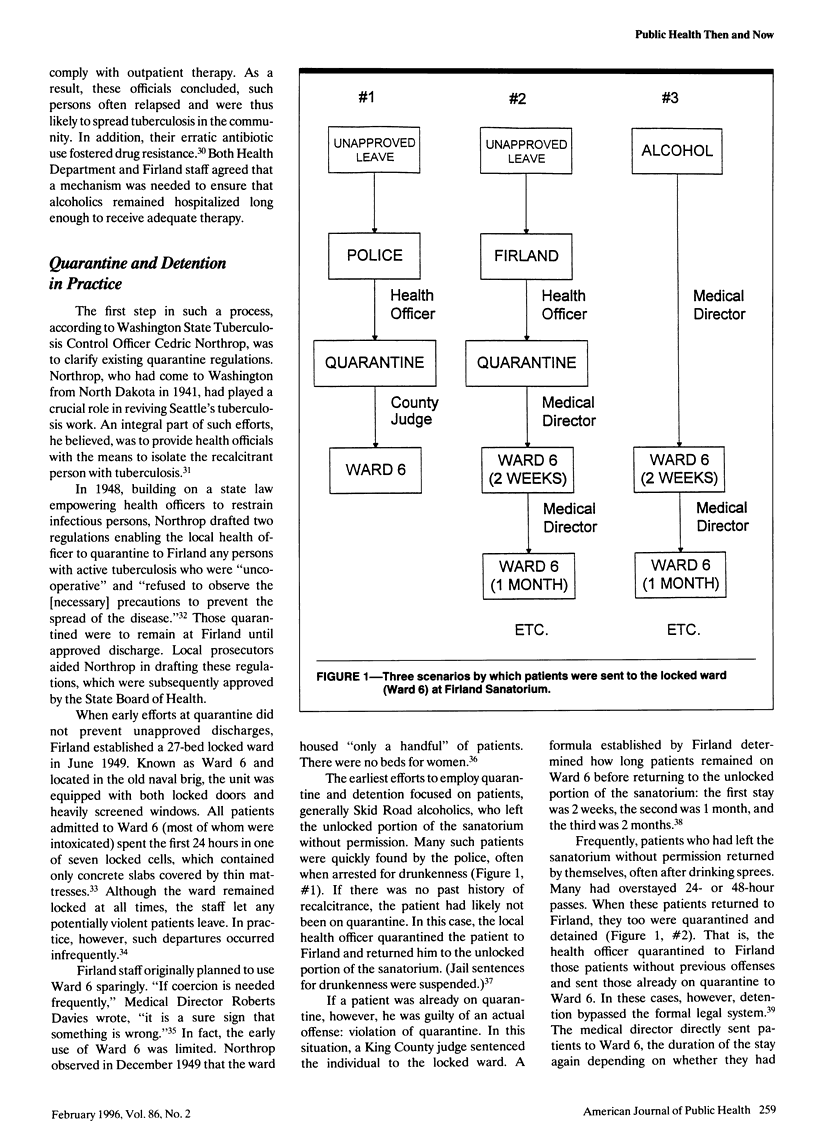
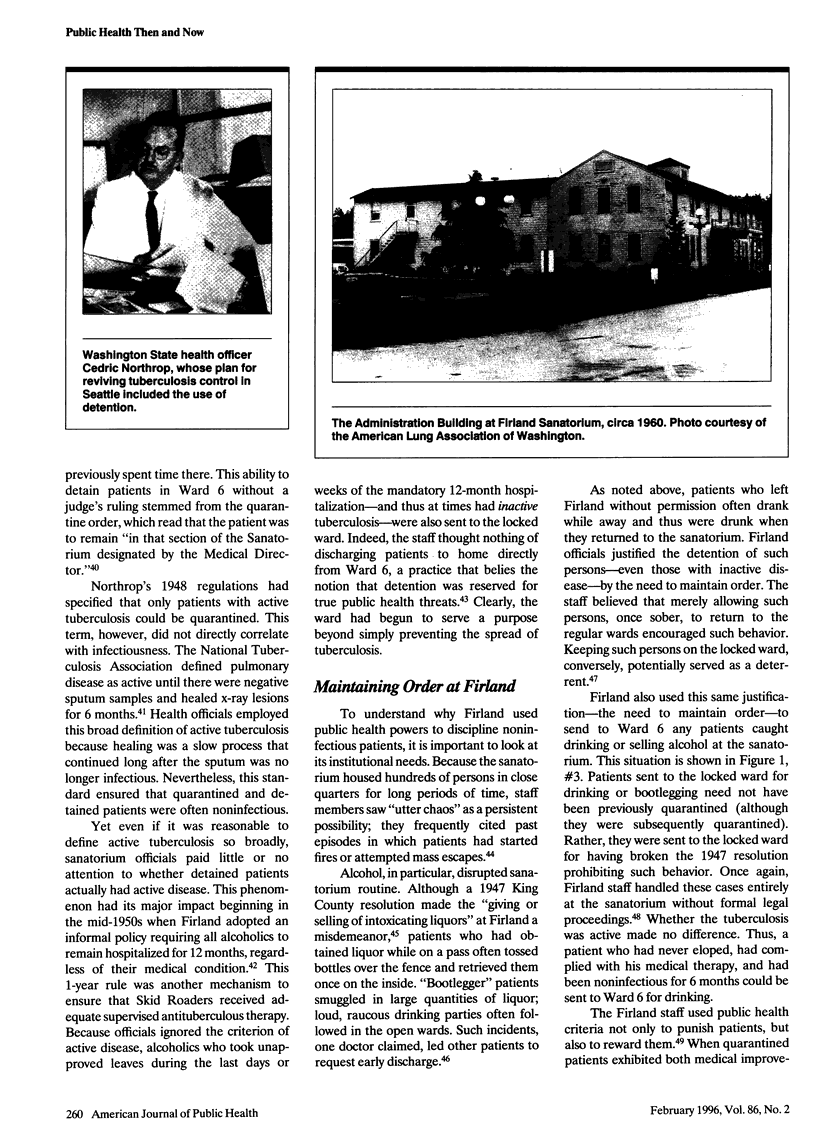
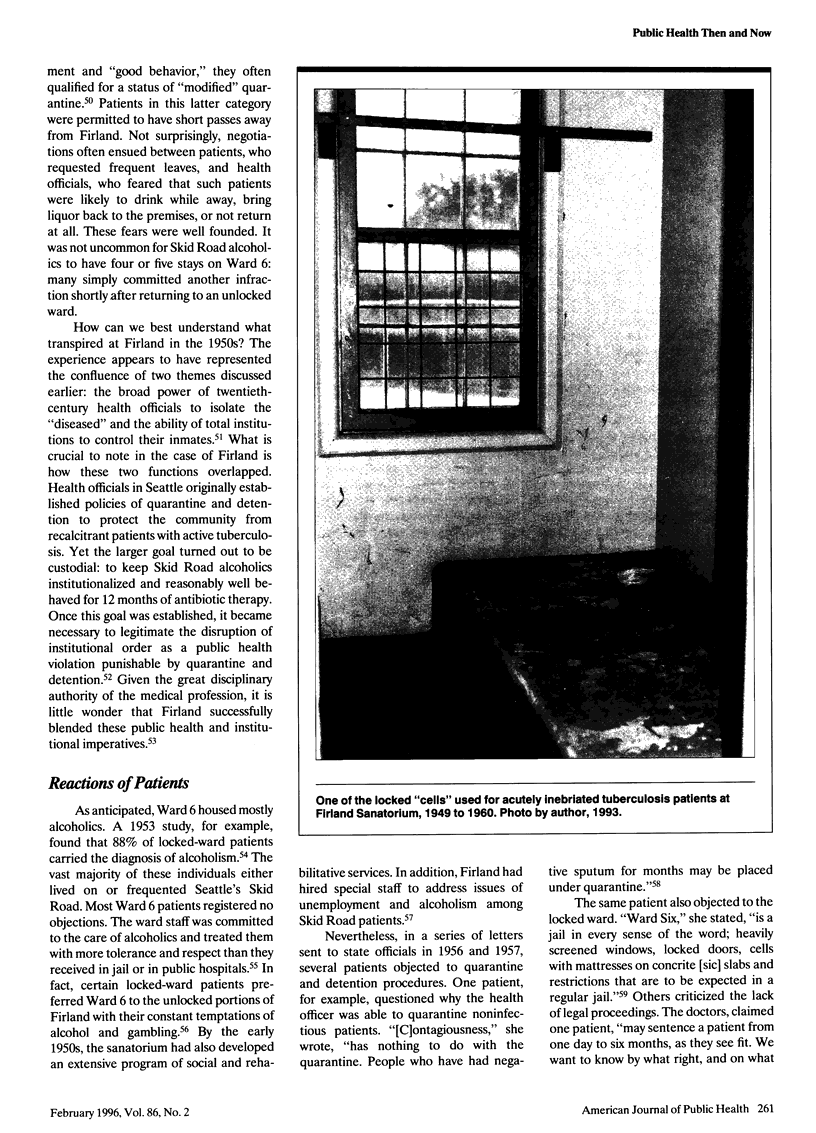
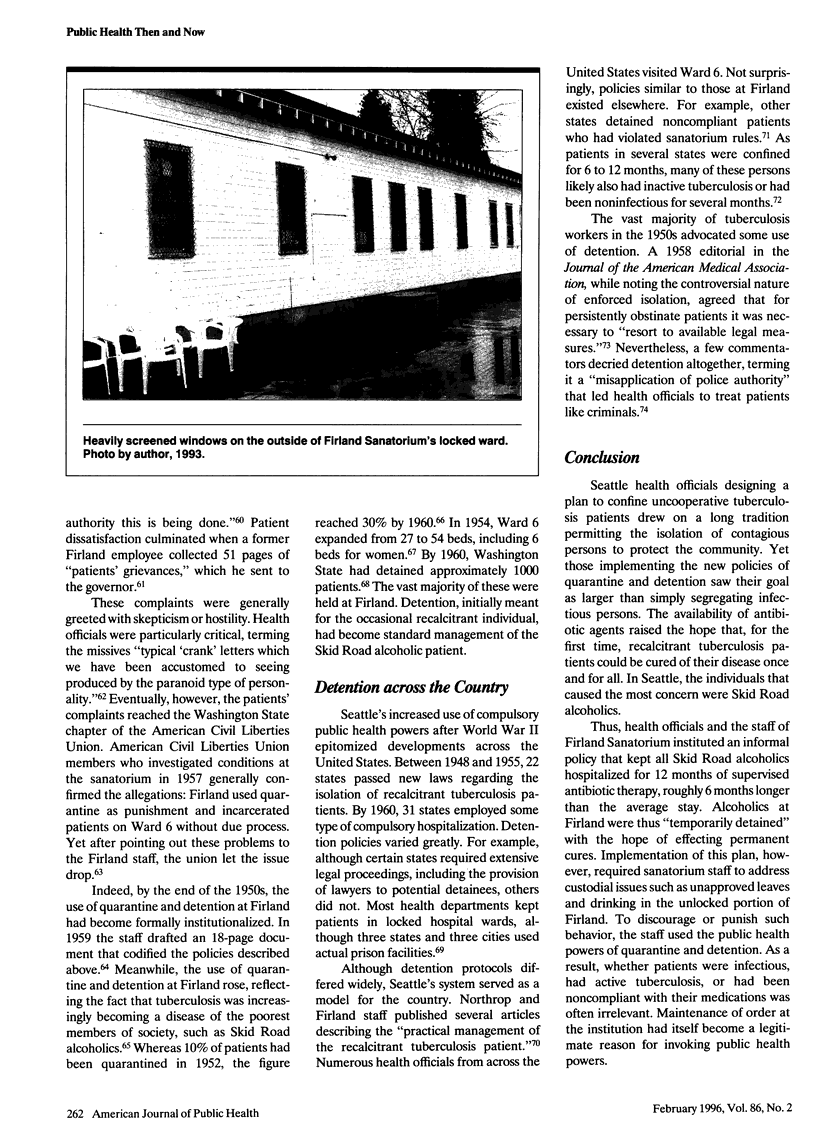
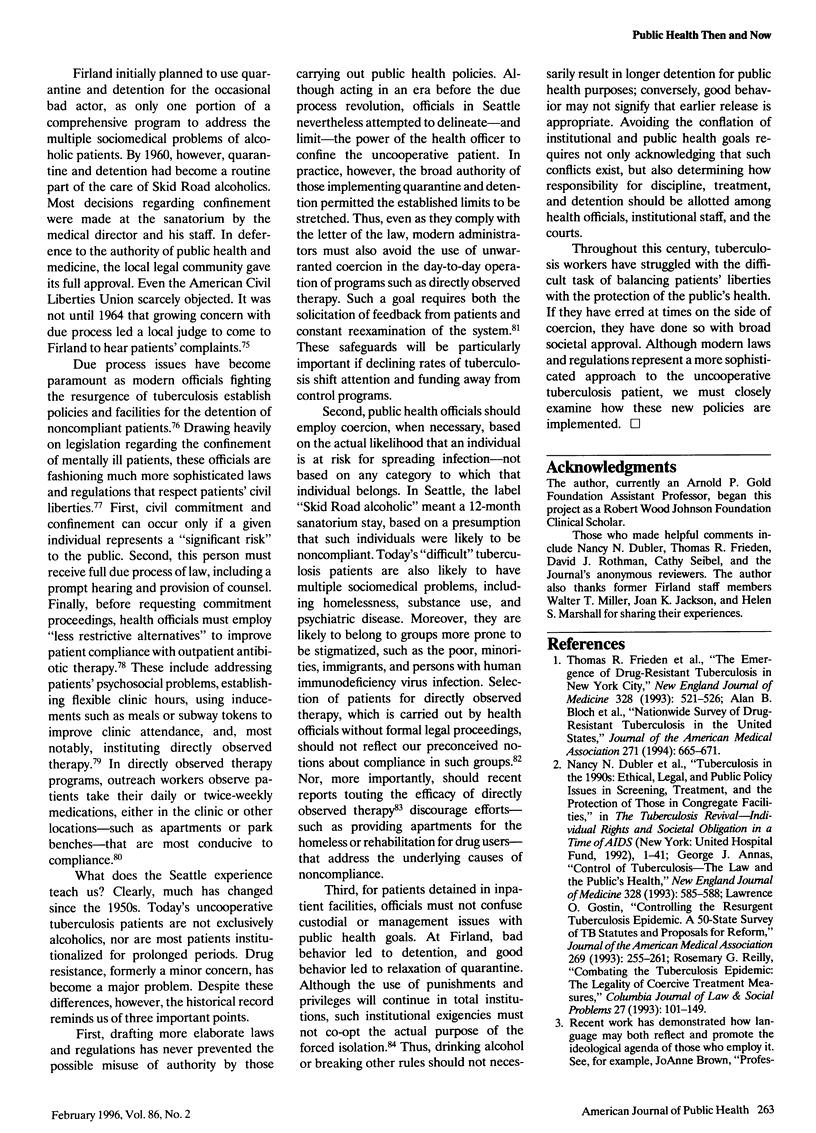
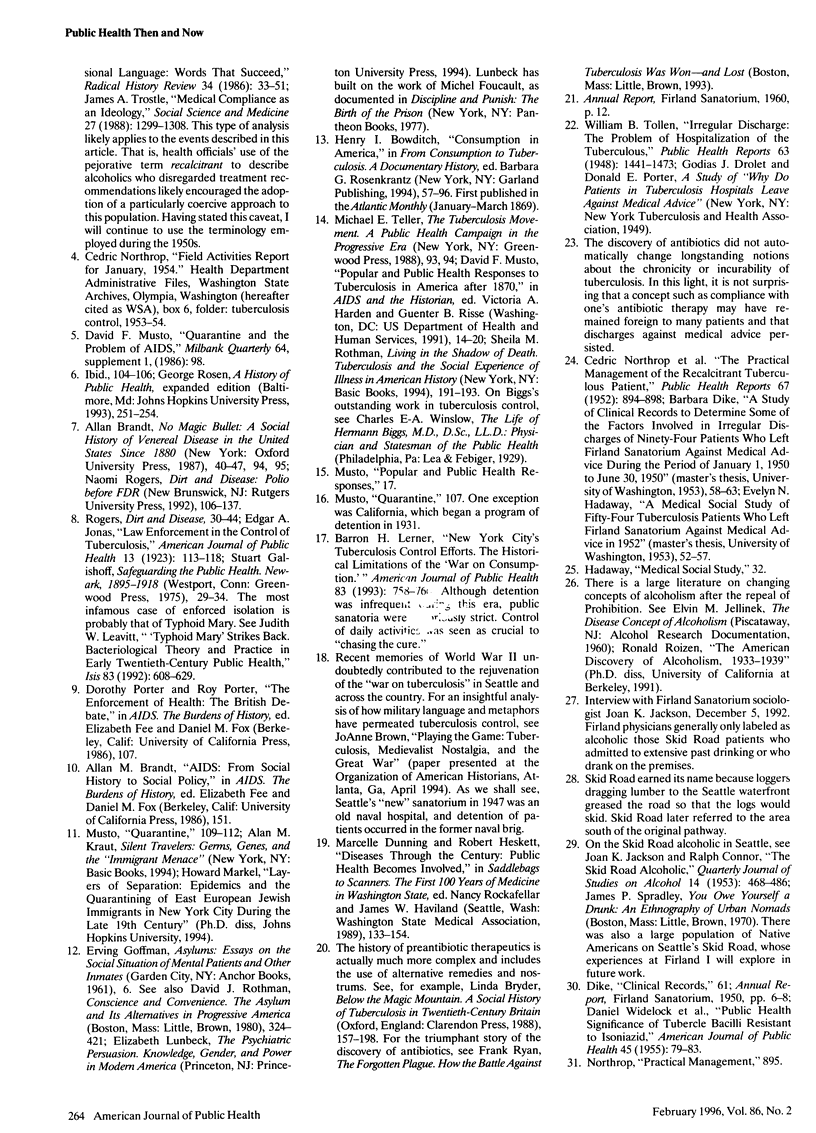
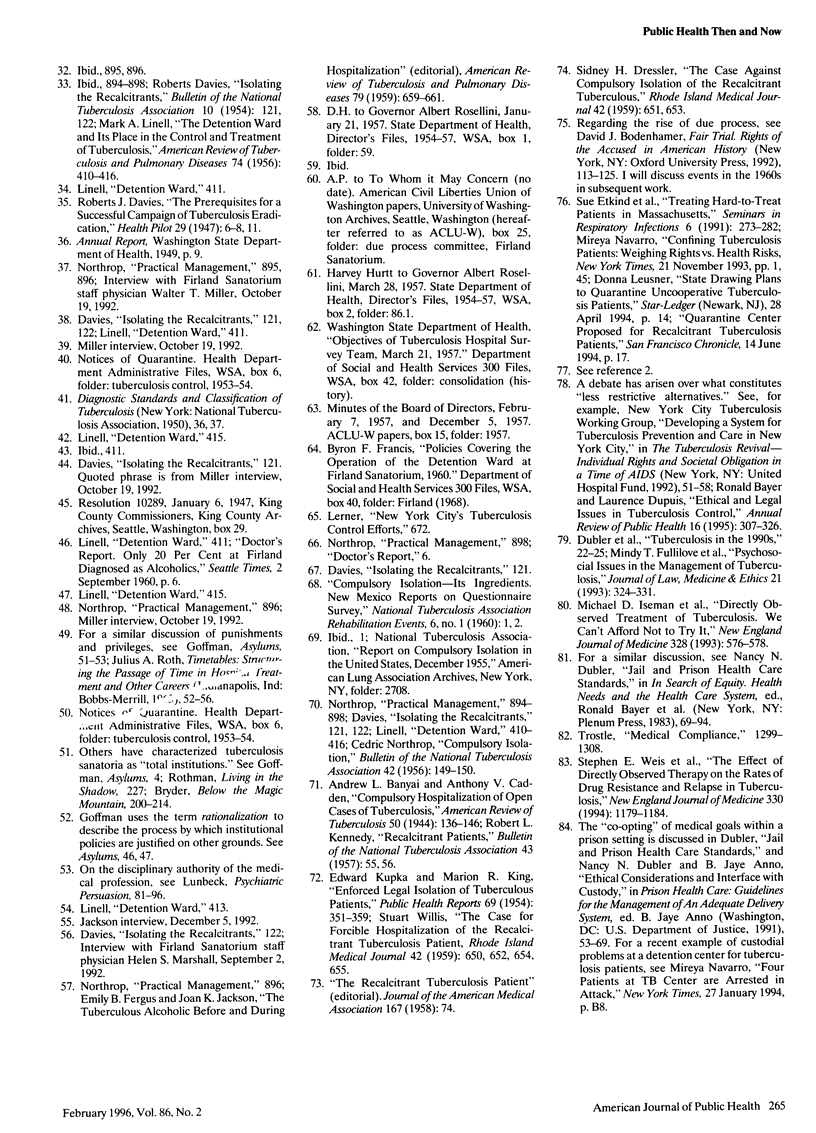
Images in this article
Selected References
These references are in PubMed. This may not be the complete list of references from this article.
- Bloch A. B., Cauthen G. M., Onorato I. M., Dansbury K. G., Kelly G. D., Driver C. R., Snider D. E., Jr Nationwide survey of drug-resistant tuberculosis in the United States. JAMA. 1994 Mar 2;271(9):665–671. [PubMed] [Google Scholar]
- DRESSLER S. H. The case against compulsory isolation of the recalcitrant tuberculous. R I Med J. 1959 Oct;42:651–passim. [PubMed] [Google Scholar]
- Etkind S., Boutotte J., Ford J., Singleton L., Nardell E. A. Treating hard-to-treat tuberculosis patients in Massachusetts. Semin Respir Infect. 1991 Dec;6(4):273–282. [PubMed] [Google Scholar]
- Frieden T. R., Sterling T., Pablos-Mendez A., Kilburn J. O., Cauthen G. M., Dooley S. W. The emergence of drug-resistant tuberculosis in New York City. N Engl J Med. 1993 Feb 25;328(8):521–526. doi: 10.1056/NEJM199302253280801. [DOI] [PubMed] [Google Scholar]
- Fullilove M. T., Young R., Panzer P. G., Muskin P. Psychosocial issues in the management of patients with tuberculosis. J Law Med Ethics. 1993 Fall-Winter;21(3-4):324–331. doi: 10.1111/j.1748-720x.1993.tb01257.x. [DOI] [PubMed] [Google Scholar]
- Gostin L. O. Controlling the resurgent tuberculosis epidemic. A 50-state survey of TB statutes and proposals for reform. JAMA. 1993 Jan 13;269(2):255–261. doi: 10.1001/jama.269.2.255. [DOI] [PubMed] [Google Scholar]
- Iseman M. D., Cohn D. L., Sbarbaro J. A. Directly observed treatment of tuberculosis. We can't afford not to try it. N Engl J Med. 1993 Feb 25;328(8):576–578. doi: 10.1056/NEJM199302253280811. [DOI] [PubMed] [Google Scholar]
- JACKSON J. K., CONNOR R. The skid road alcoholic. Q J Stud Alcohol. 1953 Sep;14(3):468–486. [PubMed] [Google Scholar]
- Jonas E. A. LAW ENFORCEMENT IN THE CONTROL OF TUBERCULOSIS. Am J Public Health (N Y) 1923 Feb;13(2):113–118. doi: 10.2105/ajph.13.2.113. [DOI] [PMC free article] [PubMed] [Google Scholar]
- KUPKA E., KING M. R. Enforced legal isolation of tuberculous patients. Public Health Rep. 1954 Apr;69(4):351–359. [PMC free article] [PubMed] [Google Scholar]
- LINELL M. A. The detention ward and its place in the control and treatment of tuberculosis. Am Rev Tuberc. 1956 Sep;74(3):410–416. doi: 10.1164/artpd.1956.74.3.410. [DOI] [PubMed] [Google Scholar]
- Leavitt J. W. "Typhoid Mary" strikes back. Bacteriological theory and practice in early twentieth-century public health. Isis. 1992 Dec;83(4):608–629. doi: 10.1086/356292. [DOI] [PubMed] [Google Scholar]
- NORTHROP C., FOUNTAIN J. H., ZAHN D. W. The practical management of the recalcitrant tuberculous patient. Public Health Rep. 1952 Sep;67(9):894–898. [PMC free article] [PubMed] [Google Scholar]
- Trostle J. A. Medical compliance as an ideology. Soc Sci Med. 1988;27(12):1299–1308. doi: 10.1016/0277-9536(88)90194-3. [DOI] [PubMed] [Google Scholar]
- WIDELOCK D., PEIZER L. R., KLEIN S. Public health significance of tubercle bacilli resistant to isoniazid. Am J Public Health Nations Health. 1955 Jan;45(1):79–83. doi: 10.2105/ajph.45.1.79. [DOI] [PMC free article] [PubMed] [Google Scholar]
- WILLIS S. The case for forcible hospitalization of the recalcitrant tuberculous patient. R I Med J. 1959 Oct;42:650–passim. [PubMed] [Google Scholar]
- Weis S. E., Slocum P. C., Blais F. X., King B., Nunn M., Matney G. B., Gomez E., Foresman B. H. The effect of directly observed therapy on the rates of drug resistance and relapse in tuberculosis. N Engl J Med. 1994 Apr 28;330(17):1179–1184. doi: 10.1056/NEJM199404283301702. [DOI] [PubMed] [Google Scholar]



